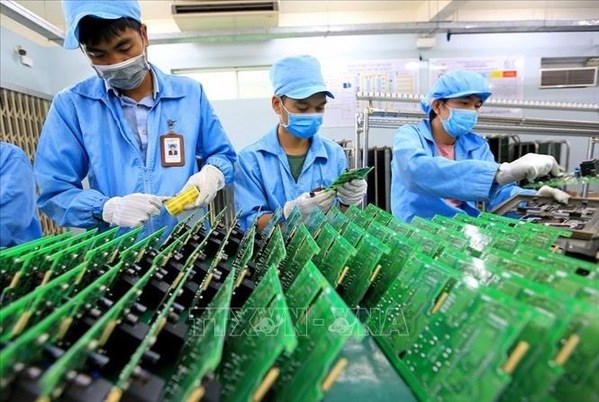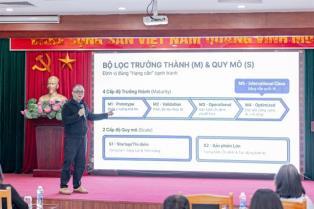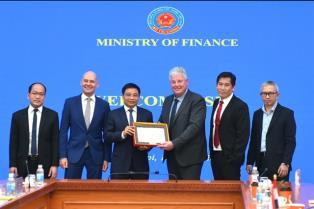Chips are not only technological products but key components of national sovereignty.

HÀ NỘI — Việt Nam isn’t just thinking about chips — it's thinking big. As the world’s digital revolution accelerates, these tiny tech components are becoming critical not only to economic growth, but also to national sovereignty.
Chairman of the board of directors at CT Group Trần Kim Chung stressed that Việt Nam was undergoing a powerful digital transformation at unprecedented speed. In response, he called for a higher vision — one that sees the country mastering core semiconductor technologies, from design and production to commercialisation.
According to Chung, it is essential to develop products 'Made by Vietnam' to meet public, defence and security needs, while also competing fairly on the global stage. For this, he argued, Việt Nam must build an independent, self-sufficient and resilient semiconductor industry to lay the groundwork for high-tech development and national self-reliance.
“Only then,” he said, “can the country truly become the new semiconductor hub of Southeast Asia, serving both its own needs and supplying the world.”
Director of the Institute of Professional Electronic Engineering under the Ministry of Public Security Colonel Lê Hải Triều noted that while some domestic companies had made progress in chip design, Việt Nam remained dependent on foreign production — a risk in terms of both cost and security.
Experts agree that in order to achieve technological self-sufficiency and drive a sustainable digital transformation, collaboration is crucial. Policymakers, researchers and technology firms must work hand-in-hand.
The Politburo’s Resolution No 57-NQ/TW on breakthrough development in science, technology, innovation and national digital transformation lays out concrete tasks for state agencies, including the encouragement of public procurement of domestically researched products.
To implement this, Chung emphasised the need for a strategic alliance between the state, universities, and businesses — the so-called 'three-house model.'
The Banking Times (Thời báo Ngân hàng) quoted Mai Thị Thanh Oanh, deputy CEO of Cốc Cốc Co Ltd, as saying that sustained support for tech enterprises — particularly in R&D — was vital. This could be achieved through state-backed venture capital funds and more transparent, efficient tax incentives.
She added that open data policies and prioritising Vietnamese-made technology within public agencies would act as critical 'launch pads,' giving local innovations the chance to scale and prove themselves in real-world applications.
Oanh also underlined the importance of programmes that connect businesses, research institutes, and universities to develop a high-quality workforce — one that is technically skilled and attuned to market needs. Strong partnerships between these three entities, she said, would help speed up product development and improve their practical impact once commercialised.
Chairman of the Việt Nam Young Entrepreneurs Association Đặng Hồng Anh proposed that private enterprises be allowed to invest in and operate high-tech parks — provided they meet required technical and sustainability standards.
He also called for scrapping the current requirement that businesses must set up scientific and technological enterprises to receive incentives. Instead, he suggested a simpler, more flexible registration process for firms engaging in scientific and technological activities.
In addition, Anh urged the government to open doors for private companies to take part in key national initiatives such as technology decryption, artificial intelligence, big data, genome mapping and digital transformation in sectors like agriculture and the environment. — VNS




